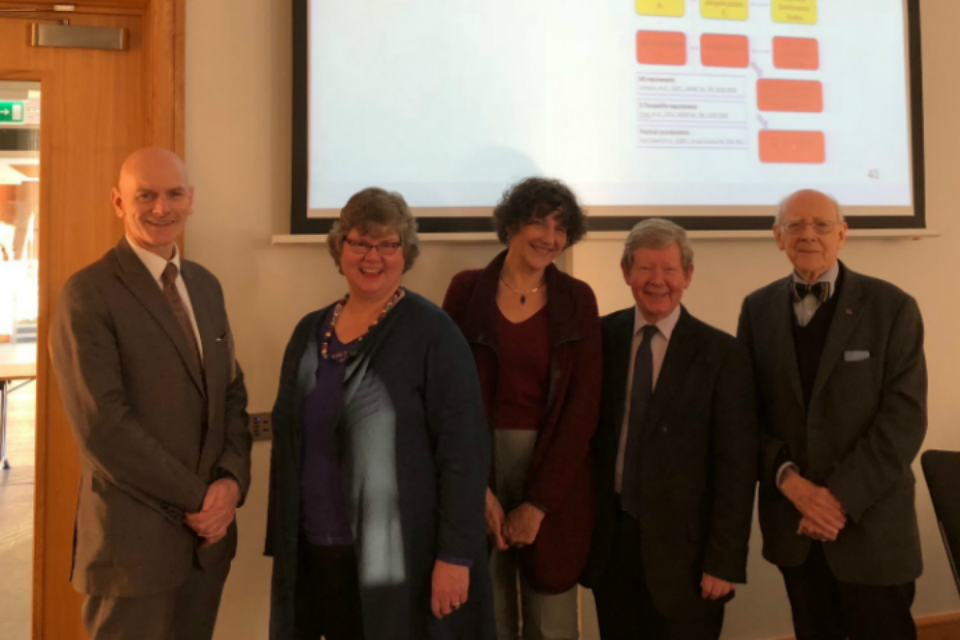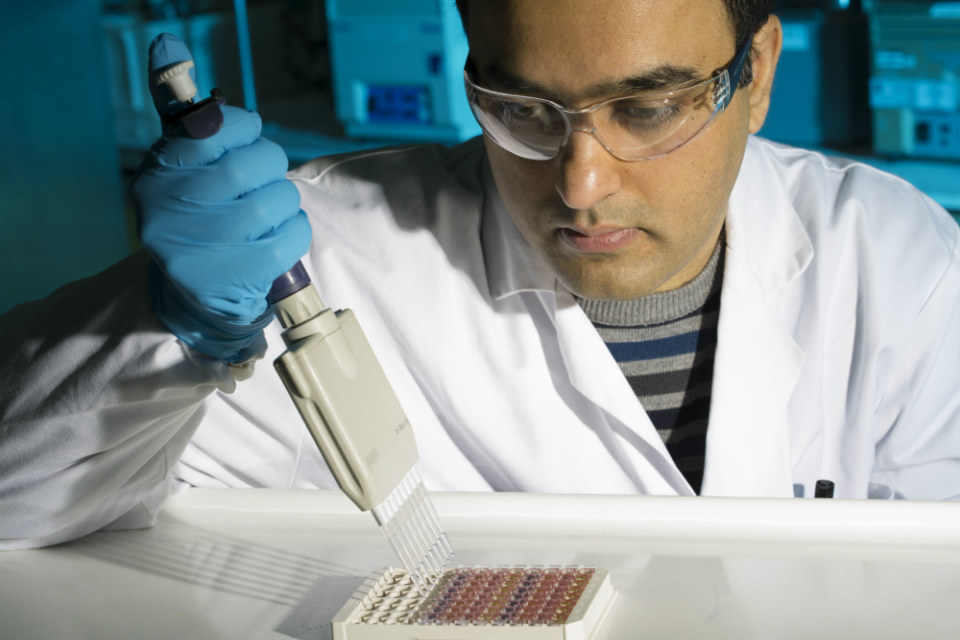Government Chemist work regarding management of food allergens
Summary of recent activities that the Government Chemist has engaged in recently in the area of food allergen management

Most common allergenic food
Background
The Government Chemist has a long standing interest in food allergy stemming from acknowledged difficulties in allergen analysis. Our interest focuses in three areas:
-
Metrologically traceable food allergen analysis (the science of ensuring allergen measurements correspond from one lab to another across the globe)
-
Resolution of analytical disputes about allergen measurement (referee cases)
-
Food allergen management 鈥� better to understand industry best practice so as to interpret allergen measurement results in the right context and offer advice to businesses, regulators, enforcement authorities and consumers on request.
We continue to contribute to knowledge transfer in these areas. Some examples of our recent work include speaking engagements to key audiences.
Food hypersensitivity post graduate module at Imperial College School of Medicine
On 12 November 2018 Michael Walker gave an invited lecture on 鈥楩ood Allergy: Public Health Issues鈥� to an audience of paediatricians, GPs and health care professionals. This was part of a post graduate module on Food Hypersensitivity delivered by Imperial College School of Medicine, St Mary鈥檚 Hospital, London. The lecture covered:
-
Food Allergen Regulation, Enforcement and Food Law
-
Food labelling 鈥� allergen labelling
-
Analysis of food for allergens
-
Case Study 鈥� Almond or Mahaleb?
Michael quoted :
Targeting uncertainty should be a major goal for health professionals working with children, teens and families with a food allergy
Michael鈥檚 aim in this lecture was better to equip medical professionals to advise their patients what to expect from food labelling and the information they should be provided with to help manage their allergies.
鈥淔ood allergy - human clinical and forensic implications鈥� at the Institute of Global Food Security (IGFS)
On 3rd December 2018 Michael took part in a seminar 鈥楩ood Allergy 鈥� human, clinical, analytical and forensic implications鈥� at the Institute of Global Food Security (IGFS), Queen鈥檚 University, Belfast. Organised by Dr Katrina Campbell of IGFS, this seminar mainly for MSc students in food safety brought together a spectrum of speakers.
Dr Hazel Gowland spoke on 鈥楩ood Allergy: human impact and forensic implications鈥�, Professor Clare Mills, University of Manchester described 鈥楩ood Allergen Analysis in a Risk Assessment Context鈥� and Pauline Titchener, Neogen Europe Ltd, described 鈥楥ommercial allergen diagnostics鈥�. Michael鈥檚 talk: 鈥楥omplementary analysis for food allergens 鈥� the 鈥� described the resolution of several complex food recalls involving compromise of allergen test results by cross reactivity within the Prunus genus .

From left to right, Professor Chris Elliott, Dr Hazel Gowland, Professor Clare Mills, Dr Michael Walker, Professor Duncan Thorburn Burns
During the seminar for the first time all five authors of the were in the same room.
Food labelling seminar at Campden BRI
On 4 December 2018 Michael gave a talk: 鈥楢llergen labelling and regulation: Implications of UK Exit (and other things)鈥� at a Food Labelling Update Seminar at Campden BRI.
The 鈥榦ther things鈥� included remarks on the recent inquest on the death of a teenager after eating a baguette that was 鈥榩repacked for direct sale鈥�, a form of labelling that legally permits food allergen information to be available orally on request rather than printed on the food label. The seminar, attended by over 70 food company representatives, was an opportunity to describe the Government Chemist approach to food allergy and engage in dialogue.
Improving metrological traceability
Improvement in food allergen analysis in Official Control laboratories across the EU is being fostered by a cooperative analytical exercise called a 鈥榬ing trial鈥� where labs analyse a matrix spiked with allergen and return their results for evaluation along with information on the methods they have used. Organised by the Joint Research Centre, JRC, the European Commission鈥檚 science and knowledge service, this ring trial will enable JRC to disseminate best practice advice to official labs. The Government Chemist is representing the UK in this exercise with analysis spearheaded by Malvinder Singh.

Malvinder Singh